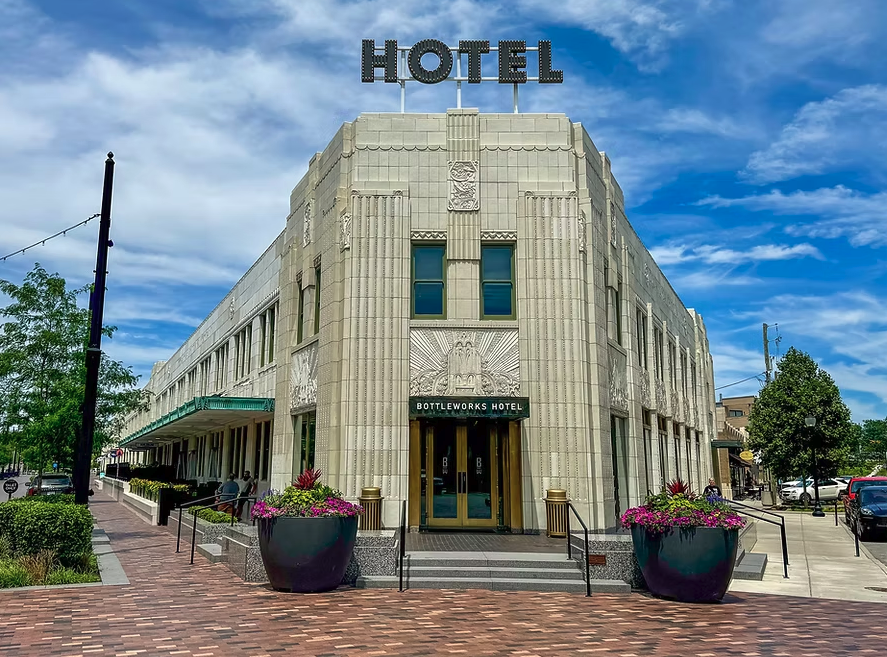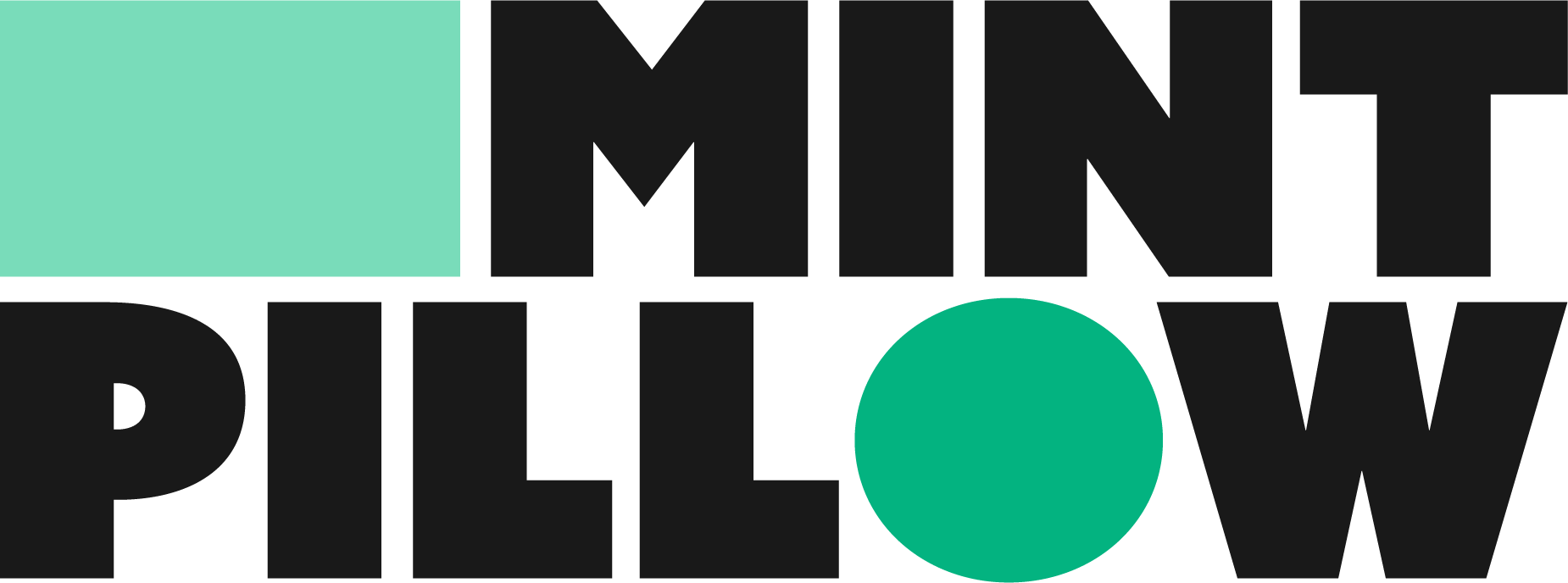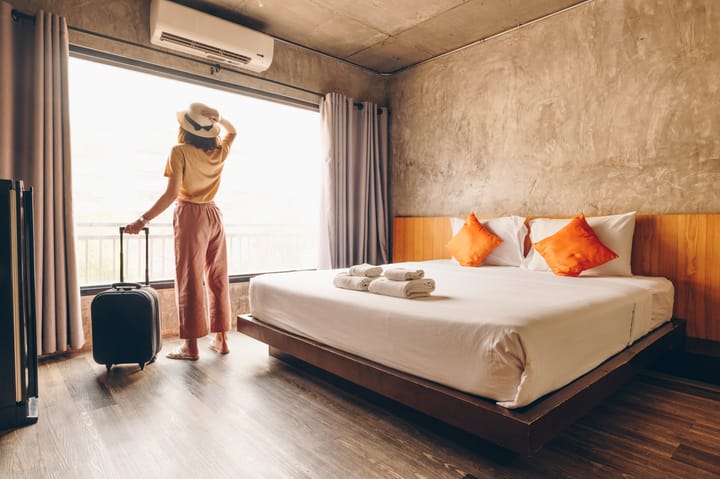Inside The Pig Hotels’ cult following
Plus: The science behind your fave hotel's signature scent

Time waits for no one—especially in hospitality. This week’s newsletter explores why time is your most valuable asset, how AI is taking dynamic pricing to the next level (hint: goodbye guesswork) and what a dusty land auction in 1905 has to do with the glittering rise of modern-day Las Vegas. Think of it as a little business strategy, a little tech talk and a throwback to the Wild West days of hospitality. Because in this business, timing really is everything.
Enjoying Mint Pillow? Share it with a friend (or copy this link)

Viva Las Vegas. The May 15, 1905 land auction that marked the official founding of Las Vegas wasn’t just a real estate milestone—it laid the groundwork 120 years ago for what would become one of the world’s most famous hospitality and entertainment hubs.
Venerated and vaunted. For more than a century, the 18 floors of The Plaza (as well as its guests and owners) have provided stories and intrigue to last another 100 years. Written by journalist Julie Satow, The Plaza: The Secret Life of America's Most Famous Hotel, is a thrilling look at an iconic property.
Immersive hospitality. Ever wonder why you can instantly recognize your favorite hotel just by the way it smells? There’s real science (and strategy) behind those signature scents—and it’s all about creating long-lasting memories and brand loyalty.
Green goals, real results. PM Hotel Group’s Sustainability Report 2024 highlights actionable strategies for reducing environmental impact while enhancing operational efficiency—key concerns for independent hotel owners seeking cost-effective improvements.
Spring check-ins. From a glam revival in Miami to minimalist cabins in Manhattan and a breezy newcomer in Laguna Beach, spring’s most exciting hotel debuts span beaches, deserts and city skylines. Highlights include two contrasting retreats near Joshua Tree, a sleek social hub in Nashville and a budget-friendly capsule concept in NYC.


'A desire for sincere, genuine hospitality should not be overlooked'
Tom Ross, CEO of The Pig Hotels, leads a beloved collection of British countryside escapes defined by its “grown in the garden, not flown in” ethos. Known for hyper-local sourcing, sustainability and relaxed luxury, each Pig property blends rustic charm with standout food and character. Under Ross’s leadership, the brand continues to champion authenticity over formality, offering guests a stay that’s rooted in place, unpretentious and a little bit wild—in the best possible way. Here, a glimpse into how he and his team keep the properties “full of soul.” -Jennifer Glatt
How do you balance creating a bespoke experience at each location with the need for operational efficiency across the group?
At scale, standardization is inevitable for operational efficiency and consistency, but it does not have to be at the expense of a bespoke experience at each site. Key to this is our people; many staff have been with us for years, and we have always had a strong policy of promoting from within. This provides a deep understanding of our culture, and by allowing our staff to be themselves while still excelling at their craft through standardized training. They have a rapport with the guests that makes it feel like an individual experience. We have guests that visit multiple sites and know many of the staff by name.
Sourcing locally and using your kitchen gardens is central to The Pigs’ ethos. What are the biggest challenges and rewards in maintaining this commitment?
Our kitchen gardens are the heartbeat of everything we do, and we have an amazing team of talented kitchen gardeners. There is a required level of effort, investment and expertise needed to ensure that the gardens produce what is needed for the kitchens on a daily basis. Guests often comment that it must be nice to have all this ‘free produce’! We view the cost of running the gardens as much of a marketing spend as a food spend. It is incredibly rewarding to see guests walk around the kitchen garden before or after a meal seeing the items that they have eaten. It is a very special environment to work in for our teams, understanding how the seasons affect the way we eat and where our food comes from.
How do you ensure that the 'soul' of each property isn't lost with growth?
Our properties are full of soul. This comes from the buildings we choose, the level of effort and love we put into the interiors, and the teams that we put together for each site. Each property is carefully chosen, and we have a checklist that we work through, which is as heartfelt as it is practical—‘how did the building make you feel when you first saw it’ is one question and is just as important as ‘what are the current utility connections?’ Every interior is different and reflects the personality of the building and its location. Our team spends a huge amount of time sourcing individual items from antique shops and reclamation sales—literally thousands of items per property. Our teams are hand-picked from our other properties and new staff go through an induction process to ‘piggify’ them. Attention to the million details is how we try to retain soul.
What trends do you see shaping the future of boutique hotels?
I am a firm believer that some ‘trends’ never go away, and in an age of digitalization and uniformity, a desire for sincere, genuine hospitality should not be overlooked. People want to feel looked after and experience exceptional hospitality. Trends by nature are fleeting, hospitality is part of humans’ DNA and this should continue to form the basis of our business. In terms of other trends, there are obvious moves into the wellness and experience space that have enormous demand. Boutique hotels can enter this space with relatively low investment. No need to spend millions on a spa when you can install prefabricated saunas and ice baths—as long as it is underpinned by great hospitality, it is the experience that the guest is after.
Above: The Pig at Combe in the United Kingdom (Courtesy The Pig Hotels/Jake Eastham)

State-of-the-Art Deco
The Bottleworks Hotel in Indianapolis has transformed a historic Coca-Cola bottling plant into a striking boutique property that blends Art Deco charm with modern luxury. Independent hoteliers take note: its adaptive reuse strategy and role as the anchor for a vibrant mixed-use district might work in your city, too.
Why it matters: By integrating the hotel into a broader entertainment, retail and dining destination, developers have created a built-in ecosystem of foot traffic and partnerships. The hotel’s success underscores the value of placemaking, community integration and leveraging historic narratives to enhance guest experiences and brand identity. (Indiana Landmarks)

Time well-spent
Conventional KPIs like occupancy rates or revenue per available room don't reflect emotional impact. “At its core, hospitality is a business of time allocation," says Mews product manager Mathias Coudert. "Guests are offering you their time in exchange for an experience."
Why it matters: Reframing hospitality as an opportunity to design time—not just space—is an approach that can drive long-term profitability through deeper guest engagement and differentiation. Curating intentional programming, amenities and touchpoints shapes how guests spend and remember their stay. (Substack)

Move farther, faster
TakeUp, the AI-powered revenue optimization platform built for independent hotels, issued its first annual Voice of Independent Hospitality report last month. Two key findings: The majority of independent properties (51%) still rely on manual seasonal price adjustments, while 50% base pricing decisions on monitoring competitors’ rates.
Why it matters: This insight highlights a critical opportunity to gain a competitive edge through automation. By moving beyond manual seasonal adjustments and reactive competitor tracking, AI-driven pricing platforms can help optimize rates dynamically and maximize revenue in real time. (Hotel Speak)

Change agent
AI agents are moving from buzzword to business tool, and hotels are poised to benefit. These autonomous systems are helping hotels streamline operations and unlock new efficiencies—if they can overcome legacy tech barriers.
Why it matters: Shifting from theoretical to practical applications, AI agents are giving boutique hotel owners new tools to improve guest satisfaction and operational agility. The key is integrating siloed systems—such as PMS, CRS, booking engines and loyalty platforms—into a unified tech stack, enabling AI to deliver meaningful insights and actions. (Hospitality Investor)
💯 Enjoying Mint Pillow? Share it with a friend.
👋 Have a story idea or want to say hello? Email us at newsletter@mintpillow.co




